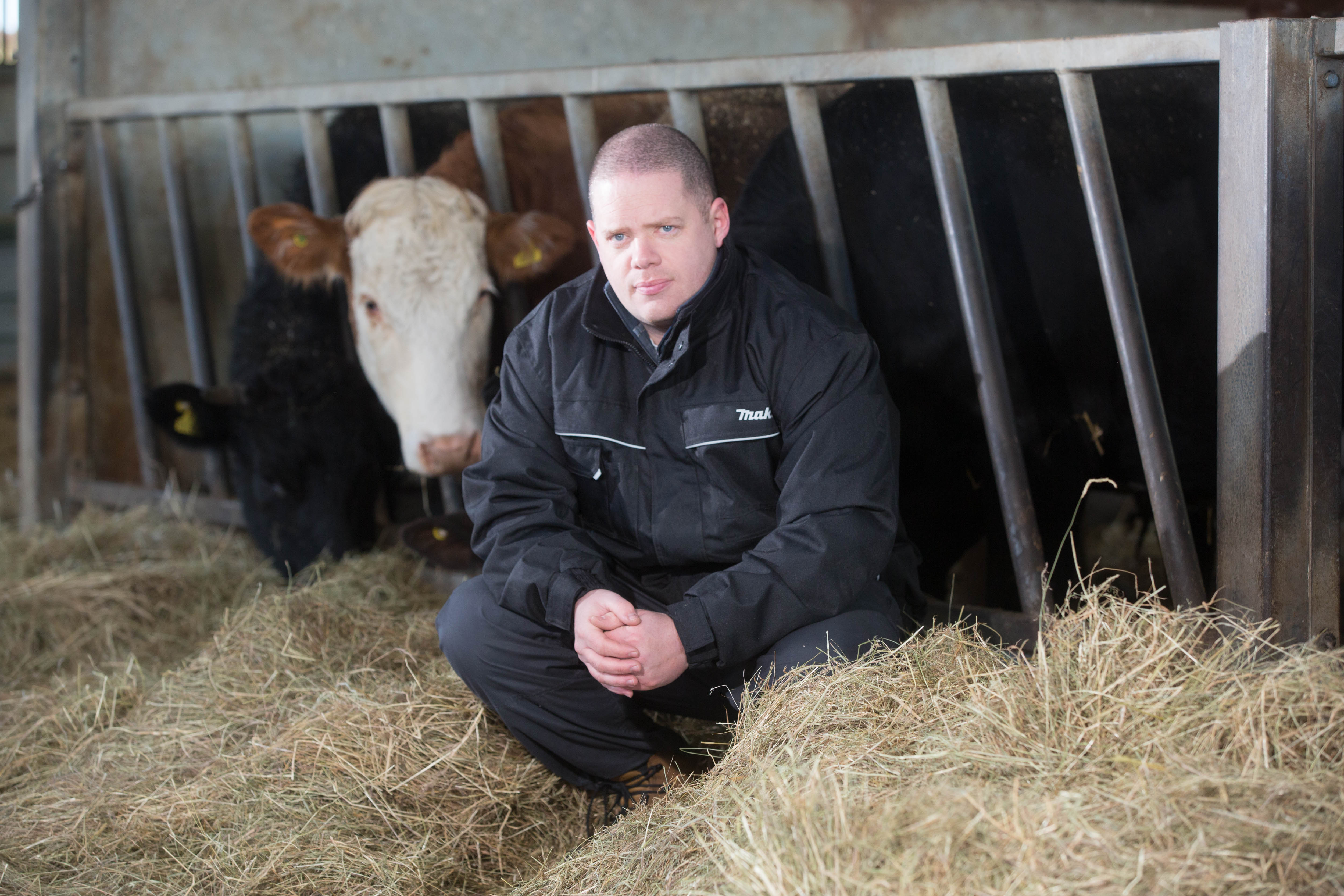Beef & Lamb farmers get on board with the Medicine Hub
Wednesday, 7 December 2022
Developed by AHDB, the Medicine Hub is an industry-wide initiative that gathers antibiotic use data from cattle and sheep enterprises in the UK. AHDB Communications Manager Charlotte Grime explains more.
Acting as an online tool to help dairy, beef and sheep producers monitor and compare medicine use, the Medicine Hub was brought in to tackle the threat of antimicrobial resistance to the industry. It provides a safe, secure and independent central repository to collate, report and compare antibiotic use at individual farm level. AHDB has played an important role developing the Medicine Hub infrastructure and along with our industry partners, we encourage farmers to share their medicine use data. This will help prove the industry's credentials to the public, the supply chain and to competitors and customers around the world.
“Producers in the UK adhere to some of the most rigorous and robust production standards around, and work hard to achieve high levels of health and welfare as well as low antibiotic use, something the industry is rightly proud of,” says vet Mandy Nevel, Head of Animal Health and Welfare at AHDB, who has been instrumental in the development of Medicine Hub. "Even though individual farms must record medicine use, until now there has been no central online resource for doing so at a national level, something that is set to change with Medicine Hub. And it’s worth noting that, even if you have used no antibiotics in the last calendar year, this information is important to capture,” she adds.
Vets, together with farmers, set ambitious targets for antibiotic use that have been adopted by the RUMA (Responsible Use of Antibiotics in Agriculture alliance) Targets Task Force.
“Of course, antibiotics have a role in managing the health of animals and should be used appropriately. We need to understand what is being used and what rate and in which categories of animal. Medicine Hub will provide this facility,” Mandy Nevel explains.
Mandy Nevel adds: “We are often asked by farmers about the data – who gets to see it, where is it shared and so on. Data always belongs to the farmer. The farmer can choose to give permission to the vet or any other holder of data to upload it on their behalf. At all times, the farmer remains in complete control of who can and cannot see their data. Medicine Hub will only publish anonymised data.”
Medicine use data is often transferred on to Medicine Hub via the vet practice’s computer records or by a bulk data holder once the appropriate permissions have been granted. A bulk data holder could be a third party that an assurance scheme or supply chain works with.
Case studies
Mark Jelley
Mark Jelley is a beef farmer in Northamptonshire with a 95-cow suckler herd, finishing all calves on the 500-acre mixed farm. He works with NFU and AHDB and is Chair of the Cattle Antibiotic Guardian Group.
“We set up an account in conjunction with my vet practice, Towcester Farm Vets and, to be fair, it was all fairly minimal effort from our side,” he says.
“It is possible for farmers to register on the Hub and upload data but it is easier to get your vet practice, or other bulk data holder with whom your farm business shares medicine data, to do this for you,” adds Mark.
As a Red Tractor farm, Mark and his vet were already looking at antibiotic data, but the Hub presents it in a more user-friendly way. The reports that can be generated are able to highlight areas in need of attention. For example, records showed that a lot of antibiotics were being used for calves with navel infections due to inadequate pen hygiene. Changes to pen management and hygiene protocols have now been implemented.

Bryan and Liz Griffiths
Bryan and Liz Griffiths farm just over 300 acres in North Devon with a flock of 850 Mule and Suffolk crosses alongside 30 finishing cattle. Bryan, a former chairman and now Vice President of the National Sheep Association (NSA), also sits on the AHDB Beef & Lamb Sector Council.
“Producers work hard to achieve high levels of health and welfare as well as responsible antibiotic use, but until now, there has been no central resource for building a picture of antibiotic use at a national level,” Bryan says.
“Of course, we do get some disease, who doesn’t? And we treat as and when needed,” Bryan explains. “Like many sheep producers, our main issues are around lameness especially contagious ovine digital dermatitis (CODD), and occasional pink eye, but we adhere to the principle of ‘as much necessary but as little as possible’.”
“This ongoing development of Medicine Hub will aid the defence of the livestock sector’s reputation and help protect antibiotics for human use in the future,” adds Bryan.
Interested?
For more information, go to medicinehub.org.uk There is also information there explaining how to start and what to do if you want your vet, software provider or other data holder to share data on your behalf. Further support is available at medicinehub@ahdb.org.uk (Tel: 02477 719 414)
.JPG)

